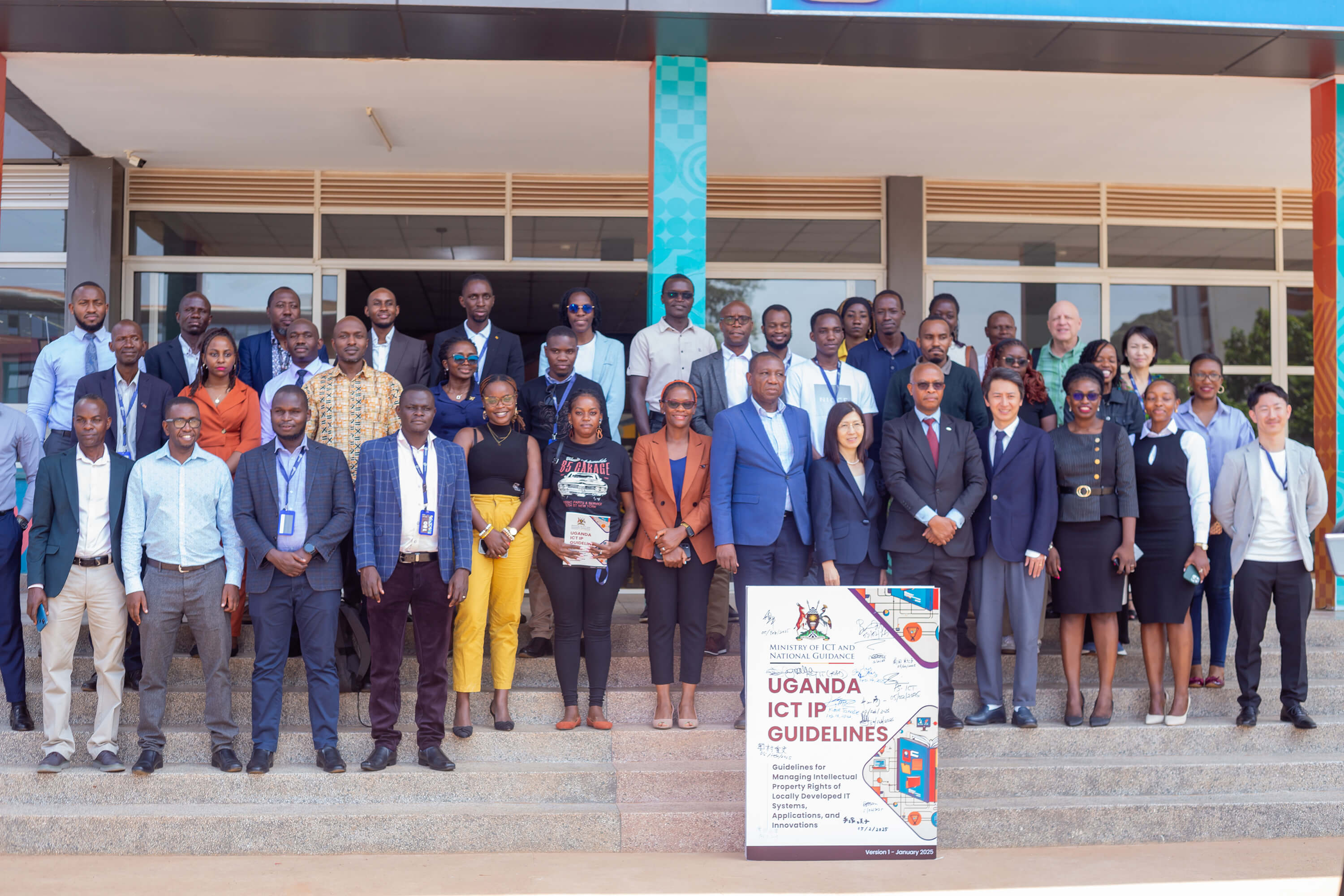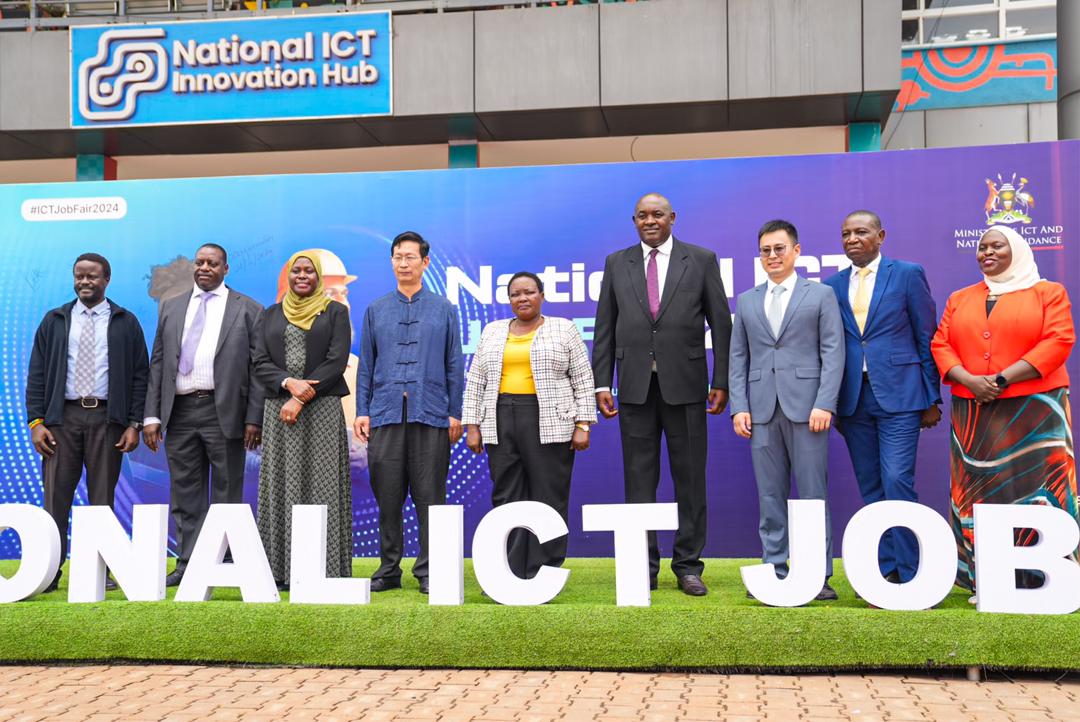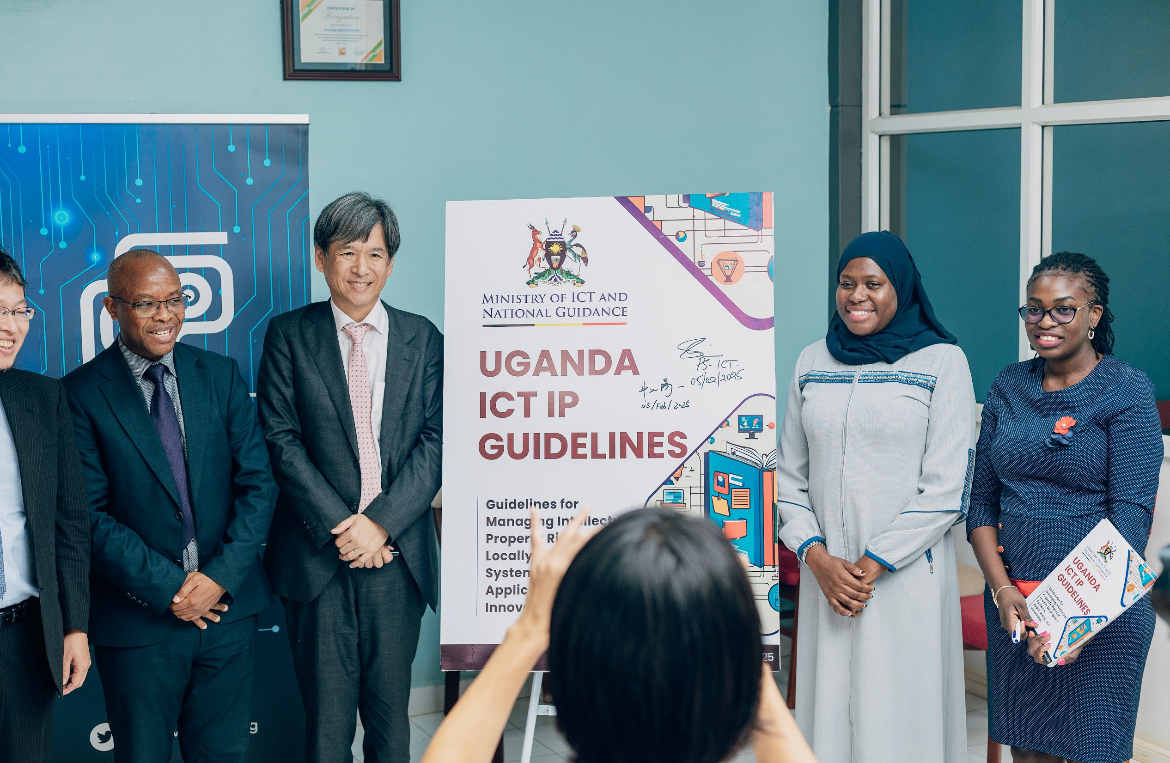On Friday, 14th February 2025, the Ministry of ICT and National Guidance (MoICT&NG), in partnership with the Japan International Cooperation Agency (JICA), hosted the ICT Intellectual Property (IP) Guidelines Dissemination Workshop at the National Innovation Hub in Nakawa. The event aimed to provide Ugandan innovators with crucial knowledge on how to protect and commercialize their intellectual property in the growing ICT sector.
In his opening remarks, Mr. Moses Watasa, Commissioner of Communications, speaking on behalf of Dr. Aminah Zawedde, Permanent Secretary of MoICT&NG, emphasized the importance of the guidelines in safeguarding innovators' rights and strengthening the ICT ecosystem in Uganda. He stated, “The ICT IP guidelines are designed to safeguard innovators' rights, strengthen the legal framework to deter IPR violations and promote the integration of ICT across various sectors. We are committed to ensuring these guidelines reach all corners of the country, leveraging communication channels like radio, TV, and digital platforms.”
Mr. Watasa reaffirmed the Ministry’s commitment to fostering a vibrant ICT ecosystem by supporting innovators and tapping into Uganda’s youthful and creative talent.
Developed with contributions from key stakeholders, including JICA, the Ministry of Justice and Constitutional Affairs, Uganda Registration Services Bureau (URSB), KTA Advocates, and others, the guidelines provide a clear framework for managing intellectual property in Uganda’s growing tech industry. They focus on encouraging the registration of unique innovations, such as software and hardware, with the Uganda Registration Services Bureau (URSB) while safeguarding Intellectual Property Rights for locally developed IT systems, applications, and innovations.
The primary objectives of the ICT IP Guidelines are to:
1. Encourage Innovation: Promote the development of high-level ICT solutions, including those adapted from external sources.
2. Enhance Best Practices: Ensure adherence to best practices for ICT solutions, both locally developed and adapted from abroad.
3. Facilitate Shared Infrastructure: Promote the use of infrastructure and services set up by MoICT&NG to regulate innovations and inventions.
4. Protect Innovators’ Rights: Safeguard the intellectual property rights of domestic and international innovators.
5. Commercialize Innovations: Enable innovators to commercialize their creations and generate income from their intellectual property.
These guidelines apply to all individuals and entities involved in developing innovations for the Government of Uganda or the public, including those benefiting from MoICT&NG financial support. They cover the entire intellectual property value chain, from idea generation to protection, utilization, and enforcement.
Mr. James Lubwamwa, Manager of Patents and Industrial Design at URSB, spoke about the guidelines’ role in empowering grassroots innovators and aligning with Uganda’s Vision 2040. He noted, “The ICT IP guidelines are pivotal in empowering innovators from all levels, especially grassroots innovators, who often face barriers to protecting their creations. These guidelines align with Uganda’s Vision 2040 by enabling innovation to drive national development.”
Mr. Lubwamwa also highlighted that URSB would play a critical role in scaling protected ICT innovations and supporting institutional IP policies to drive sector growth. He added, “These efforts aim to boost IP registrations, licensing, and commercialization of protected innovations across Uganda, creating a thriving innovation ecosystem.”
Mr. Amos Mpuungu, Principal ICT Officer at MoICT&NG, outlined the next steps for the dissemination of the ICT IP Guidelines, highlighting MoICT&NG’s plan to host a series of workshops across the country. He stated, “These workshops will be key to educating stakeholders and promoting responsible intellectual property management within Uganda’s growing ICT ecosystem.”
Mr. Mpuungu also emphasized plans to provide IP services at innovation hubs, particularly around public universities, every quarter. This initiative aims to offer consistent support throughout the innovation ecosystem, ensuring innovators at all stages have the resources to protect and commercialize their intellectual property.
Additionally, he proposed the formation of a nine-person team to provide both technical and financial assistance to individuals with registered IP in relevant fields. This team would help innovators navigate intellectual property protection processes. He further stressed the need for increased awareness about the importance and benefits of intellectual property within Uganda’s innovation community.
These initiatives aim to strengthen the support network for innovators across Uganda, providing the guidance and resources necessary for success in the fast-evolving ICT sector. With clear pathways for registration, protection, and commercialization, Uganda's ICT industry is poised for growth, innovation, and international recognition.
Stay tuned for updates on upcoming workshops and how you can get involved in shaping Uganda’s ICT innovation landscape!
Feb 15, 2025
Uganda’s ICT Intellectual Property Guidelines Disseminated
Intellectual Property
By Fiona Luboga

The author is a Communications Officer at the Ministry of ICT & National Guidance.
Related Stories

Intellectual Property
Ministry of ICT and National Guidance Hosts 3rd National ICT Job Fair 2024
Dec 10, 2024

Intellectual Property
Empowering Uganda’s Start-ups Through Intellectual Property (IP) Education
Oct 29, 2025
